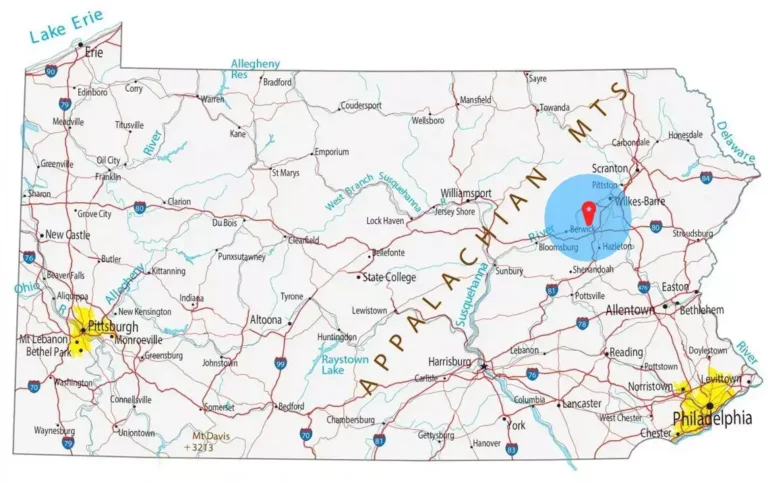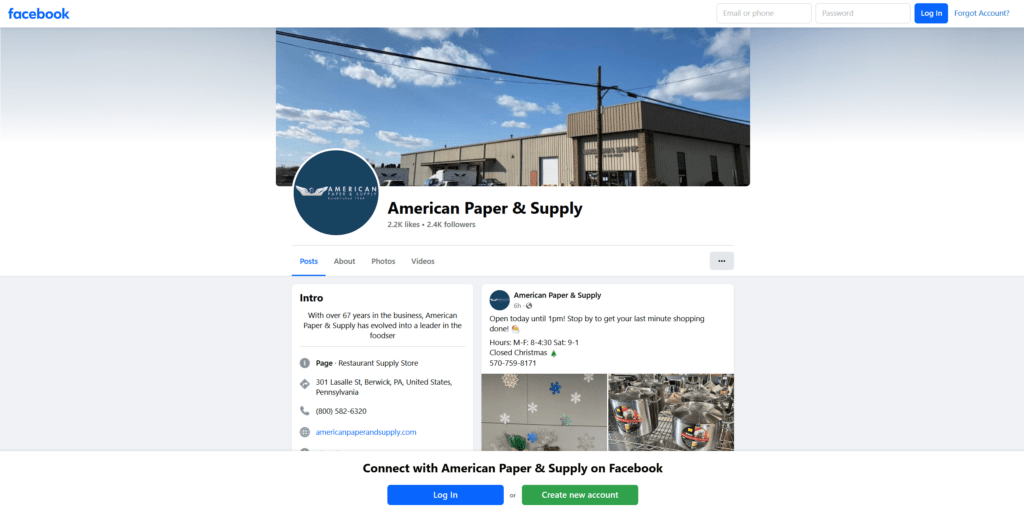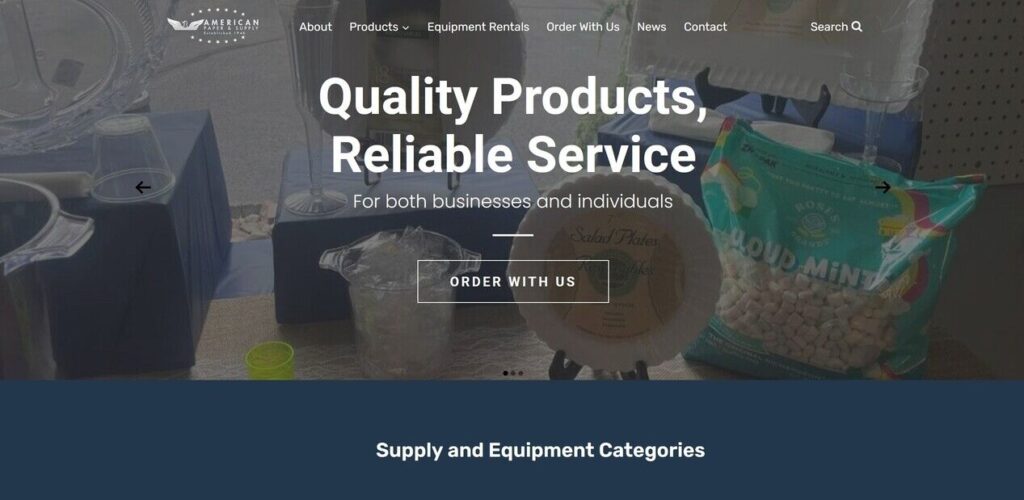Does My Business Need a Website?
15 Reasons Why It Does and 3 Why It Might Not
In today’s digital world, it’s critical for businesses to have a website to compete. A website is your digital storefront, your billboard, and your hub of online activity. It’s where you can showcase your products or services, tell your brand story, connect with customers, and promote what makes your business stand out.
But with so many businesses online, you may be wondering if your business really needs a website. Especially with the rise of social media as a marketing tool, some owners less experienced in marketing have begun to see the two as synonymous: that a website or a social media is an either/or situation. The truth is more complex than that.
A website remains viable today just as it was 15 years ago. However, it’s now even more important since customers today are less likely to walk into a store they don’t know or pick up the phone and call a business.
If you’re asking yourself if you need a website for your business, in almost every case, the answer is still a resounding yes!

Don’t just take our word for it though. Here are 15 reasons why your business needs a website:
1. Credibility
Websites makes your business look more credible and professional. According to studies run by Standford University, 75% of users admit to judging a company’s credibility base on their website’s design. This means that presenting a well-designed website boosts your trust with a large audience.
If you lack a website, you’re not only missing out, but actively hurting your trust rating since the worst website is a lack of one.
2. Visibility
Make it easy for potential customers to find your business. When people search for products or services like yours online, your website will appear in the search results and stand out better compared to social media. This means that you can reach a wider audience than you would if you only had a physical store or relied on word-of-mouth marketing.

3. Lead generation
There are many ways to generate leads and sales, but a website is one of the best. You can include contact forms, calls to action, and other lead generation tools on your website to encourage potential customers to engage with your content more.
4. E-commerce
If you sell products or services online with a dedicated brand, you need a website to streamline sales and shipping. Having your own site reduces the competition of selling through 3rd party sites like Etsy, and keeps customers browsing your inventory instead of competitor’s. Furthermore, selling through those other sites instead of your own also means that the platform owner takes a cut of your sale, reducing your profits.

5. Customer service
Many websites are used to provide customer service. You can include FAQs, knowledge bases, and support forums on your website to help customers find the answers they need. Some even include a chat system for customers to talk in real time with your team.
6. Brand awareness
A website is a great way to build brand awareness. You can use your website to share your brand story, values, and mission. You can also use your website to publish blog posts, articles, and other content that will attract potential customers to your brand.
Bonus tip: When it comes to making your brand feel uniquely yours to customers, the two best online mediums for advertising are websites and videos.
7. Thought leadership
Establish yourself as an expert to build trust and show you’re on the cutting edge in your industry. To do this, you can use your website to publish educational content that others will reference and cite, such as white papers, case studies, and industry reports.
8. Competitive advantage
In today’s digital world, most businesses have a website. It’s a simple difference, but if you don’t have a website, you’re putting yourself at a disadvantage against anyone who does.
9. Cost-effectiveness
A well-built website is more cost-effective than running a gauntlet of online ads and many other types of popular marketing. They tend to have a higher start-up cost, but in the long run are cheaper to maintain when compared to dedicated social media marketing or targeted ad campaigns.
Bonus tip: Investing monthly into your website instead of ads may raise your Google result placement slower, but the new content you create will stick with you as an investment rather than vanish as soon as you stop buying ads.
10. Scalability
Websites can easily scale with your business. You can start small, and as your business grows, expand it with add new pages and features to match your evolving needs. Many starter websites are only one to five pages in size, meanwhile a larger corporation will have one in the hundred if not thousands!
11. Flexibility
Unlike social media platforms, a website gives you complete flexibility over how you present your business and your brand to stand apart from the competition. You control the design, content, features, and navigation. No templates here!


Compare a Facebook page to a website page: Which is more catches your eye more?
12. Measurable results
You can track the performance of your website using analytics tools. These help you understand how people are finding your website, where they live, and what content they’re most interested in. The data can then be used to modify your marketing strategies to boost results.
13. Reputation management
You can use your website to publish positive reviews and testimonials from customers, boosting your credibility. Studies run by BrightLocal, an SEO analytics company, have shown that 98% of people read online reviews when researching a business. Of that number, 49% of consumers said they trusted online reviews as much as personal reviews from friends and family.
You can also use your website to address negative feedback, hopefully converting a bad customer experience into a positive one.
14. Community building
Your website can help you build a community around your business. This can come in all sorts of different forms, from hosting forums, creating groups, and organizing events. Additionally, it can also serve as a hub between your different social media accounts, allowing users to travel between them all with a single click.
15. Employee recruitment
Did you know you can use your website to boost recruitment? Through banners or dedicated pages, you can use your website to post job openings, share company culture, and promote employee benefits. Even if you’re using an alternate service like Indeed for recruiting, a separate listing on your website can help highlight which applicants are extra motivated by giving them the opportunity to apply directly rather than quick apply.
But should you always have one?
Of course, while a website provides a multitude of valuable benefits, there are situations where a business might not need a website. Sometimes this is temporary, such as in low budget start-ups, but in select special cases, they may simply not require one at all. With the next list, ask yourself if your business is one of these types.
Three reasons why your business might not need a website are:

1. You have a very niche business and you only reach customers through word-of-mouth.
A prime example of this would be a small service business that is close to retirement and has already spent decades building up local connections.
2. You only sell products or services locally and you don’t need to reach a wider audience.
A food stand that only goes to one local fair would be match this. In this case, your reach is so limited that you likely won’t pull many new sales from a website.
3. You don’t have the resources to create and maintain a website.
As we mentioned earlier, a bad website can hurt your business trust. While having a website is nearly always better than not having one, there are some cases where if you can’t dedicate the resources to doing one right, you might be better off not having one at all.
Bonus tip: If any of these reasons apply to you, then you may not need a website. However, it’s important to weigh the pros and cons carefully before making that decision. There may still be a special option that can fit your specific needs to boost your business.
The Verdict
To stand out in the modern world, almost every business needs a website if they are to thrive. It’s not just a benefit anymore; it’s practically a necessity.
The time of print yellow pages and street flyers has long passed, and standing out requires new tactics. With consumers accustomed to near-limitless information at the touch of their fingertips, many are no longer willing to walk into a business they haven’t researched online beforehand. Their first impression comes from what they see on the internet, not from walking through your door.
Today, you need to take your marketing to where they are if you want to be seen. Whether your business only operates locally or is worldwide, you need a web presence, and one of your best options starts with a quality website.
To learn more about what makes a website high quality or what type of website would work best for your business, Web Wolf offers consultations to help get you started. These are completely free and are meant to be a casual chat with no sales pressure.
